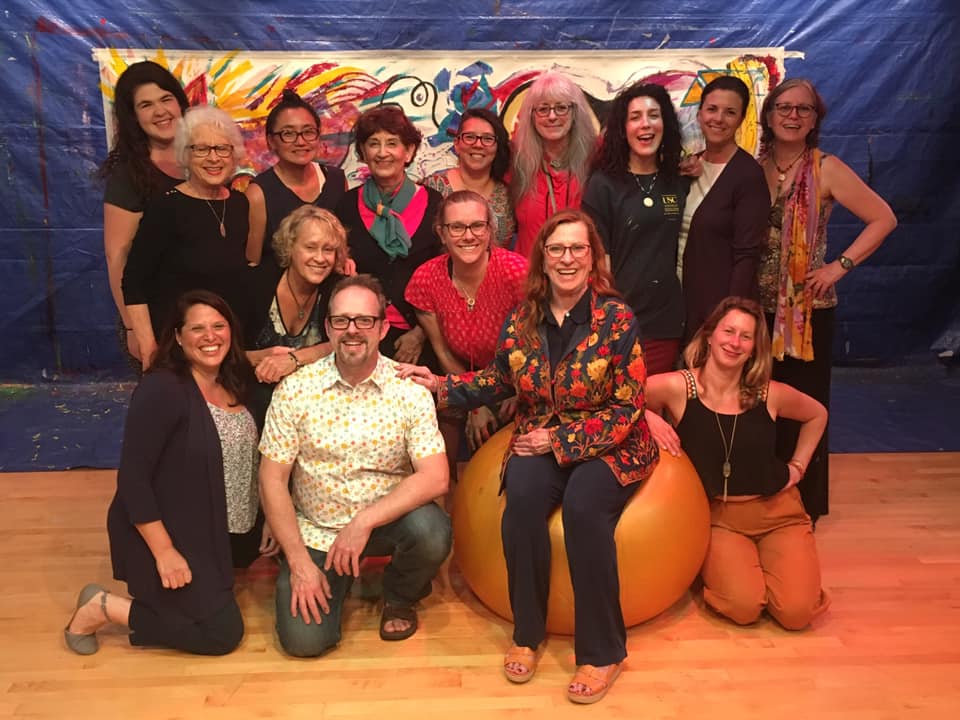
So You Want to Become an Expressive Arts Therapist or Coach? Here’s how to begin.
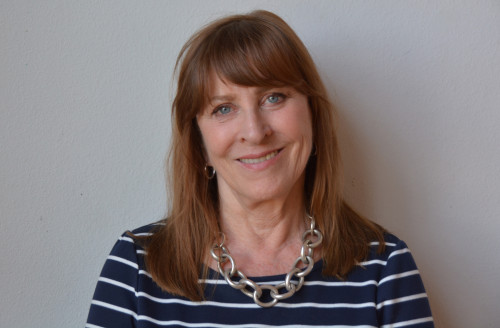
I can’t blame you. For 40 years I have had the best seat in the house.
I witness people unfold, come alive again, heal and grow through the arts. It’s the most satisfying job in the world. Helping people by making art and making a difference, what could be better than that?
What is Expressive Arts Therapy?
Expressive Arts Therapy is a profession of helping others through art making. We use five mother art disciplines; dance, drama, music, visual art, creative writing and poetry, to help people create and manage change in their lives, to learn and grow, to heal from trauma and loss and to raise the quality of their lives. There are almost limitless applications.
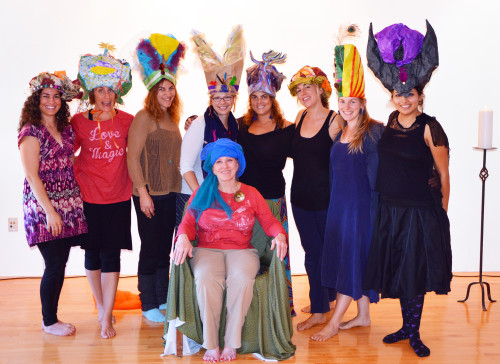
Students show off their “ethical hats” during a training weekend at the institute
Why the arts?
The arts belong to all of us, and the creative imagination is our birthright, and our companion throughout the life journey. So it is appropriate to use the arts at almost any stage of the human condition.
Graduates from my institute have jobs in creative youth development, therapeutic arts with adults and children, arts in education, individual, group and couples therapy through the arts, peace building and conflict transformation, all through the power of the arts. It is beautiful, powerful, satisfying work, but no one is “naturally qualified.” That is where education comes in.
What is the appropriate education for an expressive arts therapist, coach or educator?
An MA in the field puts you on educational par with other helpers like LCSW’s, MFT’s and LPCC’s Just taking a few eclectic workshops does not ethically qualify you to practice. There are those who claim they do expressive arts therapy on the basis of such a partial education, and without professional supervision may be practicing outside their scope of competency, and be ill prepared to handle the deep emotional material that the arts can unearth.
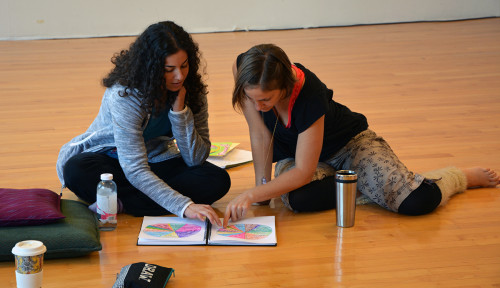
Students study in the art studio, learning by doing and then understanding the theory behind the process
What if I am already have an MA and/or am licensed professional?
Even for those who hold degrees in other helping professions, a truly comprehensive and professional education is necessary. Expressive Arts Therapy isn’t simply an add-on skill. Expressive Arts Therapists are specialists in areas that no other education provides. Competency in expressive arts therapy requires that a person undertake formal training. Professional Expressive Arts Therapists know the underlying philosophies, the guiding theories, and the best practices in methodology. And they know how to introduce naïve artists to the materials of the arts in simple and powerful ways.
What do you need to begin your education?
You can get an MA in Expressive Arts Therapy (Your BA can be in studio arts, psychology, art education, counseling or other liberal arts). Or you can use a qualifying MA in many fields such as Social Work, Counseling Psychology, Fine Arts, Marriage Family Therapy, or Education, to qualify for our comprehensive professional training in expressive arts therapy, coaching, education or conflict transformation.
Do you need a state license to practice?
No. In fact, in California and most states, there isn’t one. Like dance therapy, drama therapy, or art therapy, there is no state license for expressive arts therapists in California. Like most arts based therapies, the standard of professional excellence is registration. Registered Expressive Arts Therapist (REAT) is a designation practitioners may apply for through the International Expressive Arts Therapy Association(IEATA) after they have accrued sufficient professional education, 1000 post training hours under supervision from a REAT. Registered Expressive Arts Coach (REACE) is the equivalent for a Coach.
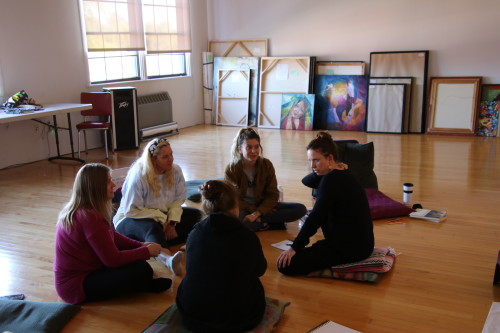
Graduates of the institute work across the San Diego, California, the country and the world bringing arts based helping to the people in need from all ages and levels of ability.
Where do expressive arts therapists work?
In schools, public and private, from pre-K through graduate school. In hospitals, both medical and mental. In community centers for both youth and seniors. In creative youth development settings. In private practice both as a primary therapist or a co-treating professional. In businesses, corporations, and chambers of commerce. With eating disorders, in-patient and residential treatment centers, and private practice; with those recovering from addiction and alcoholism; in the juvenile justice system; in hospice and geriatric settings; with couples single and families, in government agencies and even in prison.
What if I can dance but I can’t draw, or am afraid to sing?
Sounds like you are human. No one can create in all the art disciplines equally. Many of us have aesthetic wounds, having been told we are not artists. The life of the artist begins with love of the arts, and openness to possibility. You do not have to excel in any particular art discipline to become an Expressive Arts Therapist. What is required is curiosity, and willingness to be present, to trust the process, to witness, observe and make an offer, and have deep experience with your own personal creative process. We teach you very thing else you need to know.
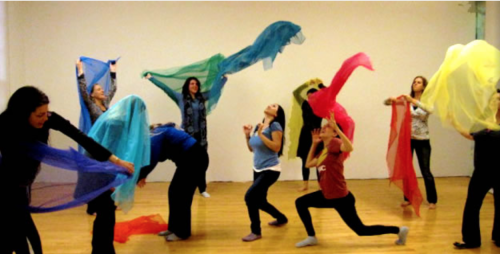
The Expressive Arts approach makes art available as a valuable tool for growth, change and learning.
How do I get started?
The best way to know if Expressive Arts Therapy is right for you, is to attend one of our two day introductory courses, offered several times per year. There you’ll get an experiential taste of what it’s like to study at the Expressive Arts Institute, and a taste for the methods and theories you’ll have a chance to learn in, all in the fun and inspiring setting of our beautiful studio.
Learn about how to register for a free information session and get answers about your career in Expressive Arts Therapy
https://www.expressiveartsinstitute.org/events/



